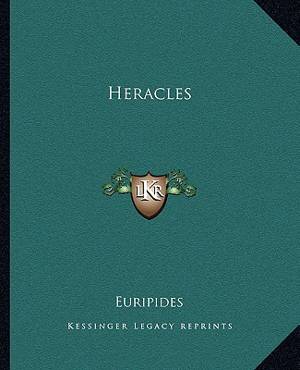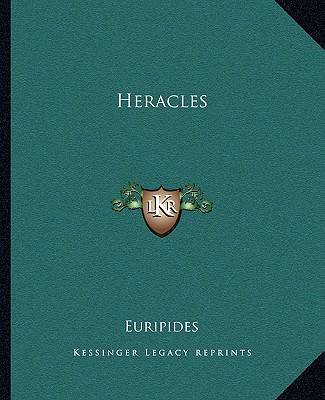
- Afhalen na 1 uur in een winkel met voorraad
- Gratis thuislevering in België vanaf € 30
- Ruim aanbod met 7 miljoen producten
- Afhalen na 1 uur in een winkel met voorraad
- Gratis thuislevering in België vanaf € 30
- Ruim aanbod met 7 miljoen producten
Zoeken
Omschrijving
Heracles is a Greek tragedy written by Euripides that tells the story of the legendary hero Heracles, also known as Hercules. The play opens with Heracles returning home after completing his famous twelve labors. However, he soon discovers that his wife, children, and father-in-law have been murdered by his own jealous wife, Megara, under the influence of the goddess Hera. In his grief and rage, Heracles is driven to madness and commits unspeakable acts of violence. The play explores themes of vengeance, justice, and the consequences of one's actions. It also delves into the idea of the gods manipulating human lives for their own purposes. Throughout the play, Heracles struggles with his own sense of guilt and responsibility for the tragedy that has befallen his family. The characters in the play include Heracles, his wife Megara, his father-in-law Amphitryon, his friend Theseus, and the messenger Lycus. The chorus, made up of Theban elders, provides commentary on the events unfolding on stage. Heracles is a powerful and emotional play that highlights the complexities of human nature and the unpredictable nature of the gods. It is considered one of Euripides' most profound works and remains a classic of Greek tragedy.Daughter, there may yet be a happy escape from present troubles for me and thee; my son, thy husband, may yet arrive. So calm thyself, and wipe those tears from thy children's eyes, and soothe them with soft words, inventing a tale to delude them, piteous though such fraud be. Yea, for men's misfortunes ofttimes flag, and the stormy wind doth not always blow so strong, nor are the prosperous ever so; for all things change, making way for each other.This scarce antiquarian book is a facsimile reprint of the old original and may contain some imperfections such as library marks and notations. Because we believe this work is culturally important, we have made it available as part of our commitment for protecting, preserving, and promoting the world's literature in affordable, high quality, modern editions, that are true to their original work.
Specificaties
Betrokkenen
- Auteur(s):
- Uitgeverij:
Inhoud
- Aantal bladzijden:
- 54
- Taal:
- Engels
Eigenschappen
- Productcode (EAN):
- 9781162665733
- Verschijningsdatum:
- 10/09/2010
- Uitvoering:
- Paperback
- Formaat:
- Trade paperback (VS)
- Afmetingen:
- 190 mm x 235 mm
- Gewicht:
- 108 g

Alleen bij Standaard Boekhandel
+ 51 punten op je klantenkaart van Standaard Boekhandel
Beoordelingen
We publiceren alleen reviews die voldoen aan de voorwaarden voor reviews. Bekijk onze voorwaarden voor reviews.











